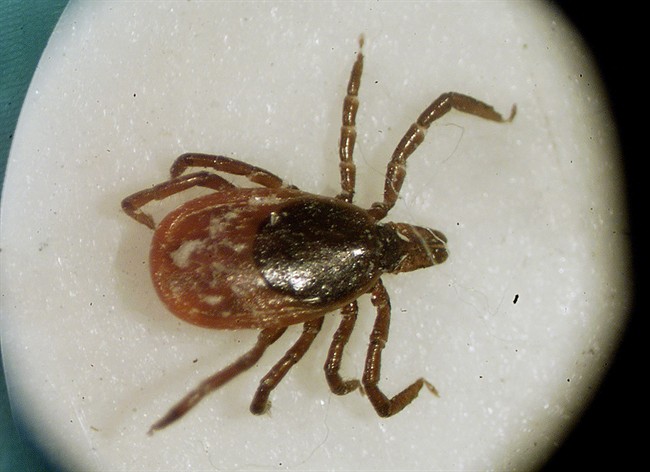With many Londoners hoping to spend part or all of the long weekend outdoors, the Middlesex London Health Unit is out with a warning.

Jeremy Hogeveen, vector-borne disease co-ordinator, confirms they’re currently seeing an uptick in the amount of ticks being submitted to the Health Unit.
“Also, when our team is going out and looking for the ticks through some active surveillance, we are finding them kind of all over the place throughout Middlesex-London,” Hogeveen told AM980.

Get breaking National news
“At this point, we’re just getting people to make sure that they start to protect themselves and to be aware that the ticks are out.”
While the best way to avoid Lyme disease is to avoid getting bitten in the first place, people can usually avoid infection if the tick is removed within 24 to 36 hours of the bite.
“The best thing you can do is remove the tick with a pair of tweezers, getting as close to the head of the tick and as close to your skin as possible, squeezing it firmly and pulling straight up with some pressure,” Hogeveen explained.
“That enables that hopefully, the tick doesn’t leave any parts behind. Then washing that area with soap and water, keeping it clean. At that point, again, if you still have the tick, you can definitely bring it in to the Health Unit and at that point, we’ll go about identifying it and if need be, testing it for Lyme disease.”
Fortunately, the majority of the ticks identified in the region have been dog ticks, which do not carry Lyme disease. However, caution is key in avoiding the infectious disease.












Comments